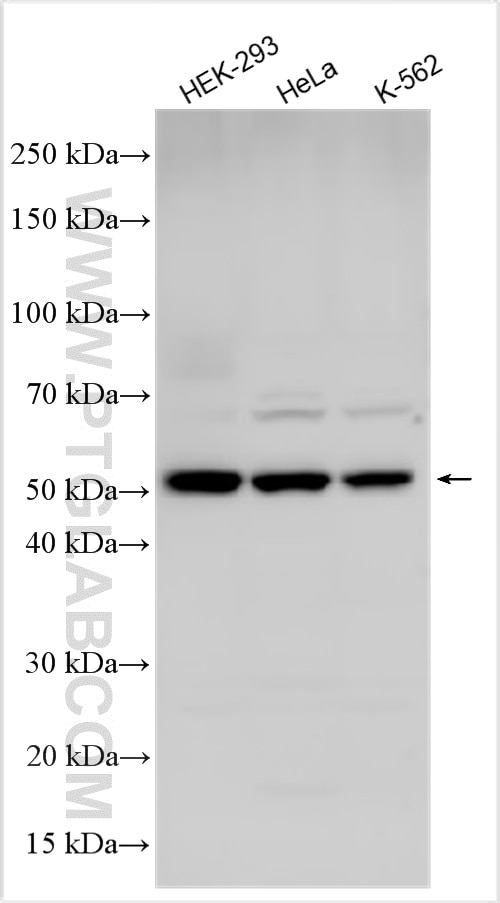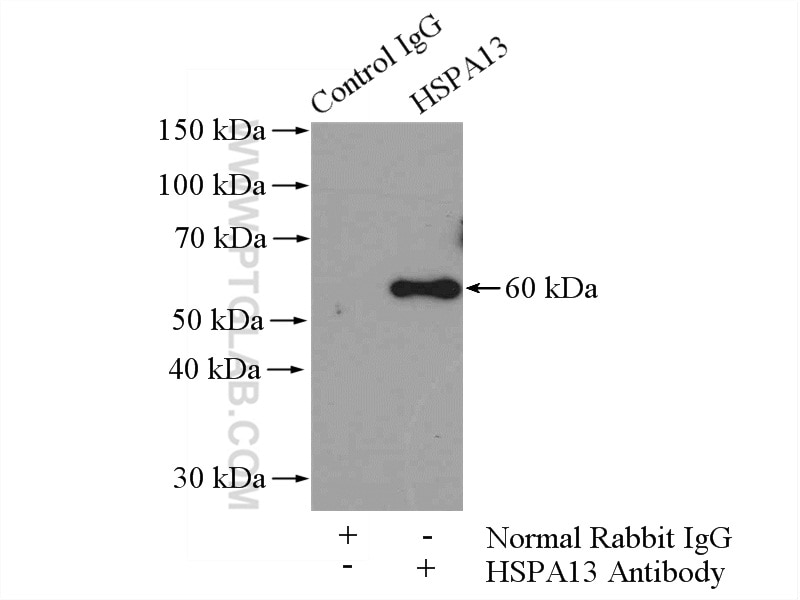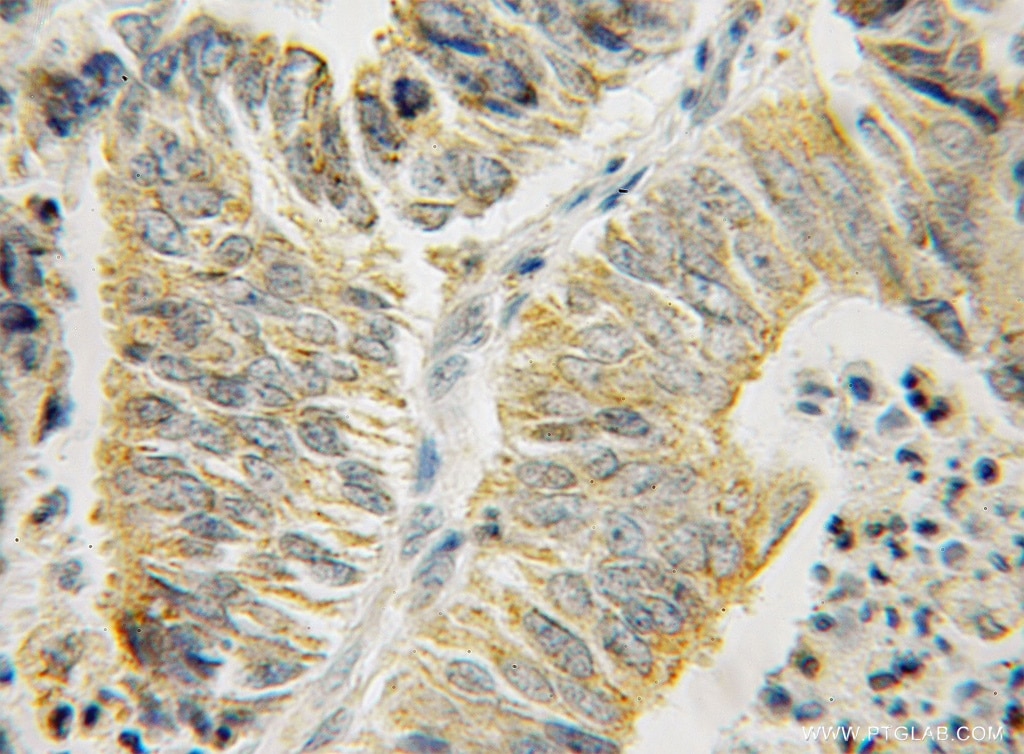- Phare
- Validé par KD/KO
Anticorps Polyclonal de lapin anti-HSPA13
HSPA13 Polyclonal Antibody for WB, IHC, IP, ELISA
Hôte / Isotype
Lapin / IgG
Réactivité testée
Humain
Applications
WB, IHC, IF, IP, CoIP, ELISA
Conjugaison
Non conjugué
N° de cat : 12667-2-AP
Synonymes
Galerie de données de validation
Applications testées
| Résultats positifs en WB | cellules HEK-293, cellules HeLa, cellules K-562 |
| Résultats positifs en IP | cellules HeLa |
| Résultats positifs en IHC | tissu de cancer de l'endomètre humain il est suggéré de démasquer l'antigène avec un tampon de TE buffer pH 9.0; (*) À défaut, 'le démasquage de l'antigène peut être 'effectué avec un tampon citrate pH 6,0. |
Dilution recommandée
| Application | Dilution |
|---|---|
| Western Blot (WB) | WB : 1:2000-1:12000 |
| Immunoprécipitation (IP) | IP : 0.5-4.0 ug for 1.0-3.0 mg of total protein lysate |
| Immunohistochimie (IHC) | IHC : 1:20-1:200 |
| It is recommended that this reagent should be titrated in each testing system to obtain optimal results. | |
| Sample-dependent, check data in validation data gallery | |
Applications publiées
| KD/KO | See 3 publications below |
| WB | See 9 publications below |
| IHC | See 2 publications below |
| IF | See 1 publications below |
| CoIP | See 2 publications below |
Informations sur le produit
12667-2-AP cible HSPA13 dans les applications de WB, IHC, IF, IP, CoIP, ELISA et montre une réactivité avec des échantillons Humain
| Réactivité | Humain |
| Réactivité citée | Humain |
| Hôte / Isotype | Lapin / IgG |
| Clonalité | Polyclonal |
| Type | Anticorps |
| Immunogène | HSPA13 Protéine recombinante Ag3349 |
| Nom complet | heat shock protein 70kDa family, member 13 |
| Masse moléculaire calculée | 471 aa, 52 kDa |
| Poids moléculaire observé | 52 kDa |
| Numéro d’acquisition GenBank | BC036370 |
| Symbole du gène | HSPA13 |
| Identification du gène (NCBI) | 6782 |
| Conjugaison | Non conjugué |
| Forme | Liquide |
| Méthode de purification | Purification par affinité contre l'antigène |
| Tampon de stockage | PBS with 0.02% sodium azide and 50% glycerol |
| Conditions de stockage | Stocker à -20°C. Stable pendant un an après l'expédition. L'aliquotage n'est pas nécessaire pour le stockage à -20oC Les 20ul contiennent 0,1% de BSA. |
Informations générales
HSPA13 (Heat shock 70 kDa protein 13), also known as STCH (the stress 70 protein chaperone), is a member of the Hsp70 family of ATPase "stress" or "heat shock" proteins. Human STCH encodes a 60 kDa protein that is highly enriched in the ER. Recently it has been reported that overexpression of the HSPA13 gene reduces prion disease incubation time in mice.
Protocole
| Product Specific Protocols | |
|---|---|
| WB protocol for HSPA13 antibody 12667-2-AP | Download protocol |
| IHC protocol for HSPA13 antibody 12667-2-AP | Download protocol |
| IP protocol for HSPA13 antibody 12667-2-AP | Download protocol |
| Standard Protocols | |
|---|---|
| Click here to view our Standard Protocols |
Publications
| Species | Application | Title |
|---|---|---|
Sci Adv HSPA13 facilitates NF-κB-mediated transcription and attenuates cell death responses in TNFα signaling.
| ||
Proc Natl Acad Sci U S A Overexpression of the Hspa13 (Stch) gene reduces prion disease incubation time in mice. | ||
Endocrinology Reassessment of the Proteomic Composition and Function of Extracellular Vesicles in the Seminal Plasma. | ||
Proteome Sci PRM-based quantitative proteomics analysis of altered HSP abundance in villi and decidua of patients with early missed abortion | ||
Cell Death Discov Heat shock protein HSPA13 promotes hepatocellular carcinoma progression by stabilizing TANK
| ||
Endocrinology Human seminal extracellular vesicles enhance endometrial receptivity through leukemia inhibitory factor |




